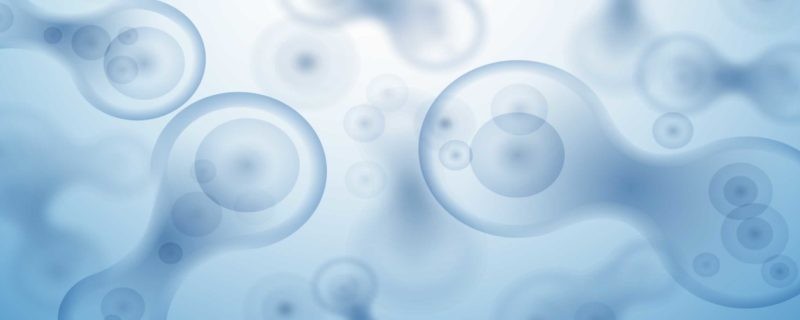
Utilizing Gene Synthesis to Improve Antibody Production in CHO Cells
In a previous blog “Strategies for Improving Antibody Production in CHO cells” three areas were identified where antibody production can be improved. As a follow up we are launching a three-part series to examine each of those areas in more depth. In the first part of this series we will look at the role of gene synthesis and the advantages it offers over traditional cloning methods.
Effective gene cloning and clone selection are critical in selecting a CHO cell line that will be a good fit for biomanufacturing. CHO cell lines for biomanufacturing must grow well, have high expression, and be stable over time. In classic cloning there are many steps that lead from sequence to clone selection and inherently there is a lack of control over the gene that develops. Due to the imprecise nature of the process, the result can be a poor quality gene or no gene at all. Similarly gene mutations or single nucleotide polymorphisms may also be present.
Gene synthesis is an alternative to classic cloning that offers a precise way to create a gene and more control over the final gene that is developed. There are about 50 companies worldwide that offer gene synthesis services. The main advantages to outsourcing a project to one of these companies is that when a gene is created using gene synthesis antibody expression levels are typically higher; there is an increased ability to express difficult proteins; no genetic mutations are present; and outsourcing is convenient and saves internal lab time. Another consideration to keep in mind is the sometimes proprietary status of gene sequences and the trust that biotechnologists place in gene synthesis companies is very critical to long term success.
Improving expression levels is often a goal when using gene synthesis. Codon optimization is a service that takes the codon usage portion of the gene and matches it to the codon preferences of the expression host. This typically results in significantly higher expression levels of the antibody. There are also many other factors that can be optimized to make a better cell line including making adjustments to improve mRNA stability and various cis-elements in transcription and translation. The improvement in expression levels from gene synthesis was documented in a publication by GeneArt (now Life Technologies), titled “Multiparameter RNA and Codon Optimization: A Articlesized Tool to Assess and Enhance Autologous Mammalian Gene Expression,” it was shown that 86% of optimized genes showed higher expression than the corresponding wildtype; 100% of optimized genes showed expression while 12% of wildtype genes did not; and protein expressed from optimized genes was soluble and showed full functional activity.
In addition to improving expression levels, gene synthesis allows changes to the antibody at the genetic level to improve the final product. One example of this is with humanizing antibodies. Antibodies generated from one species, for instance mice, can be seen as foreign by the human body and can cause side effects in some patients that are similar to a severe allergic response. In addition because they are seen as foreign the body acts quickly to remove them from the blood stream meaning frequent dosing and an overall weaker immune response to the antigen. An effort has been made to use genetic engineering to create an antibody that contains more human DNA. Using gene synthesis, the mouse antibody is sequenced then some of the mouse DNA code is replaced with human DNA code and the result is either a chimeric antibody (usually about 33% mouse and 67% human) or a humanized antibody (usually 5-10% mouse and 90-95% human). These more human antibodies mean that the final medicine will be more readily accepted in the human patient and that the drug will remain in circulation thereby improving the immune response and reducing dosing requirements. Likewise the lack of mutation at the genetic level also creates a more pure antibody.
While performance benefits are often the driving factor, many companies are also finding that gene synthesis is more cost-effective than classic cloning. To conduct classic cloning, companies need to purchase the required olgionucleotides, molecular biology reagents and factor in a skilled scientist to do the work. Classic cloning is time consuming and draws internal resources away from other projects, so some companies are finding that outsourcing is a good alternative. This has not always been the case and five years ago the cost of gene synthesis was over $3 to $4 per base pair, which made it cost prohibitive and cheaper to do in-house. However, with gene synthesis companies employing the best machinery, specialized employees who are experts and high throughput, they have been able to reduce the cost to below 50 cents a base pair. This kind of pricing makes it very affordable to outsource. Specific pricing is variable and depends on the sequence type, the size of the sequence, what customization is requested and how much of the work the company wants to do internally, but in most cases it remains cost-effective to outsource. Some gene synthesis companies will also produce and purify the antibody in small volumes for an additional fee.
| Company Name | Technology Name | Turnaround Time | Purified Protein Manufacturing Available |
|---|---|---|---|
| Life Technologies (formerly GeneArt) | GeneOptimizer | Average time 10 business days, speed service available 5-7 days | Yes |
| DNA 2.0 | GeneGPS | Less than 1.5 kb delivered in less than 15 business days, rush services are available to reduce the time to 5-10 business days | Yes |
| GenScript | OptimumGene | 12 days for up to 1kb, with an additional week added per kb | Yes |
| IDTn (Intergrated DNA Technologies) | Ultramers | Depends on length, complexity and vector choice. | No |